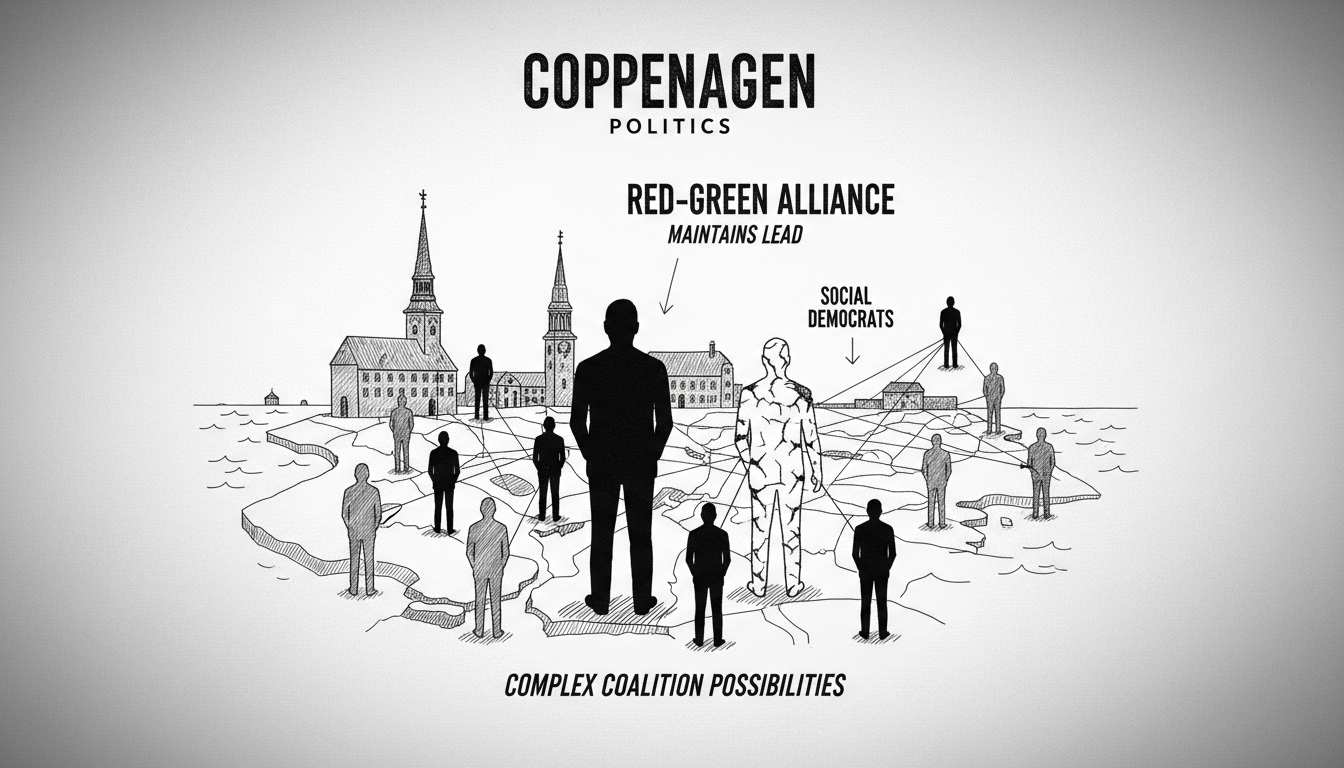The Red-Green Alliance has secured its position as Copenhagen's largest political party for the second consecutive municipal election. Despite a slight decline of 2.5 percentage points, the party captured 22.1 percent of votes in the Danish capital. This outcome confirms the party's strong urban appeal and progressive voter base.
The Social Democrats faced another disappointing result in Copenhagen. The party received 12.7 percent of votes, dropping 4.5 percentage points from the previous election. This decline means the Social Democrats no longer hold the second-largest position at City Hall. The Socialist People's Party emerged as the new second-largest force with 17.9 percent support, marking a substantial gain of 6.9 percentage points.
All three major parties now compete to form a governing majority in Copenhagen's City Council. The magic number remains 28 mandates needed to control the 55-seat assembly. Each party's lead candidate campaigns to become Copenhagen's next lord mayor. The Conservative People's Party also fields a mayoral candidate despite a small decline, maintaining its position as the largest center-right party with 11.3 percent support.
Ten different parties gained representation in Copenhagen's City Council, creating numerous possible coalition scenarios. The Social Democrats have previously ruled out supporting any other party's candidate for lord mayor. Meanwhile, the Socialist People's Party and Red-Green Alliance remain ambiguous about potential mutual support.
Political negotiations have already begun among most parties except the Social Democrats and Independent Greens. The Copenhagen election dominated much of the municipal campaign season, with several national Social Democratic ministers actively participating. Former minister Pernille Rosenkrantz-Theil leads the Social Democrats' effort to retain power in the capital.
The Red-Green Alliance and Socialist People's Party feature current deputy mayors as their standard-bearers. Line Barfoed represents the Red-Green Alliance while Sisse Marie Welling leads the Socialist People's Party's bid for the lord mayor's office. Current lord mayor Lars Weiss did not seek reelection after taking over from Sophie Hæstorp Andersen when she became a national minister.
The election also spotlighted the Independent Greens and their political leader Sikandar Siddique. The left-wing party secured 2.0 percent of Copenhagen votes and one council mandate, likely going to Siddique, a former member of parliament.
Copenhagen's political landscape continues shifting leftward, with progressive parties dominating the urban vote. The city's electorate demonstrates distinct preferences compared to national trends, favoring environmental and social welfare policies. The coming coalition negotiations will determine whether any party can assemble the required majority to govern Europe's oldest monarchy capital effectively.

